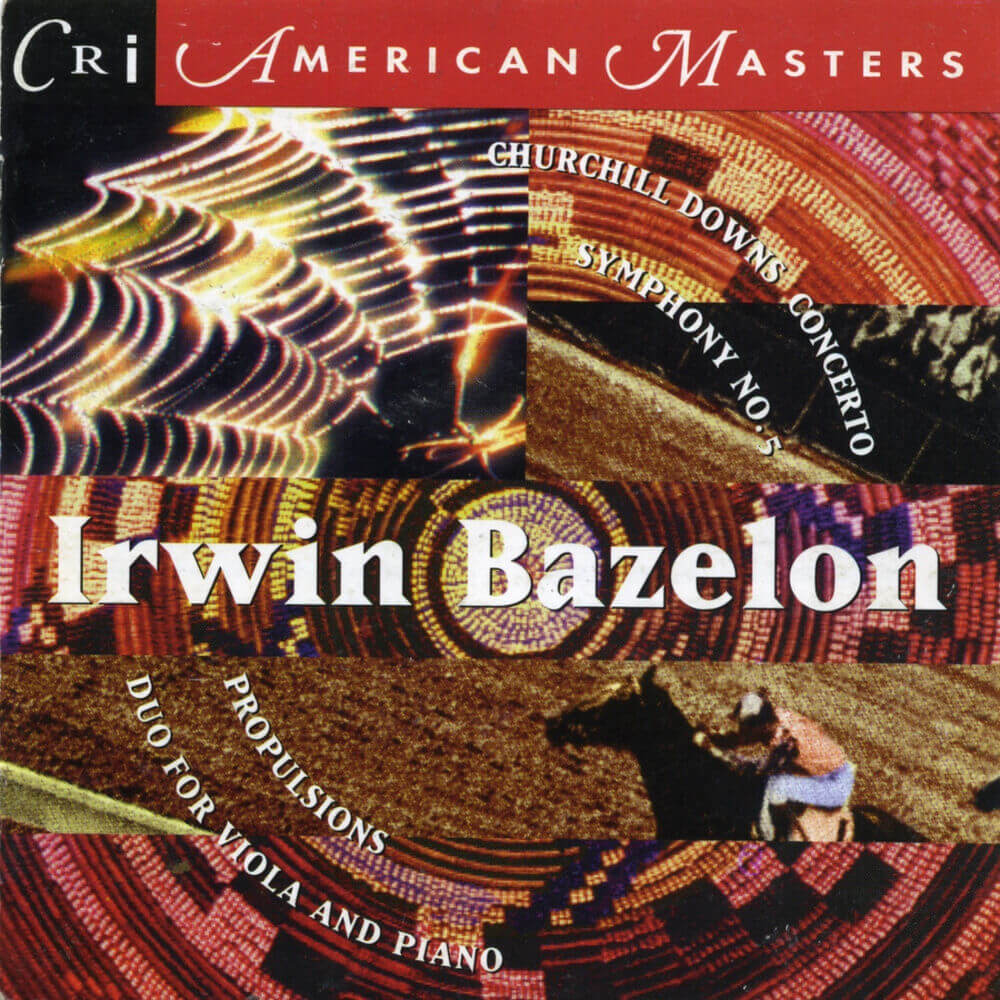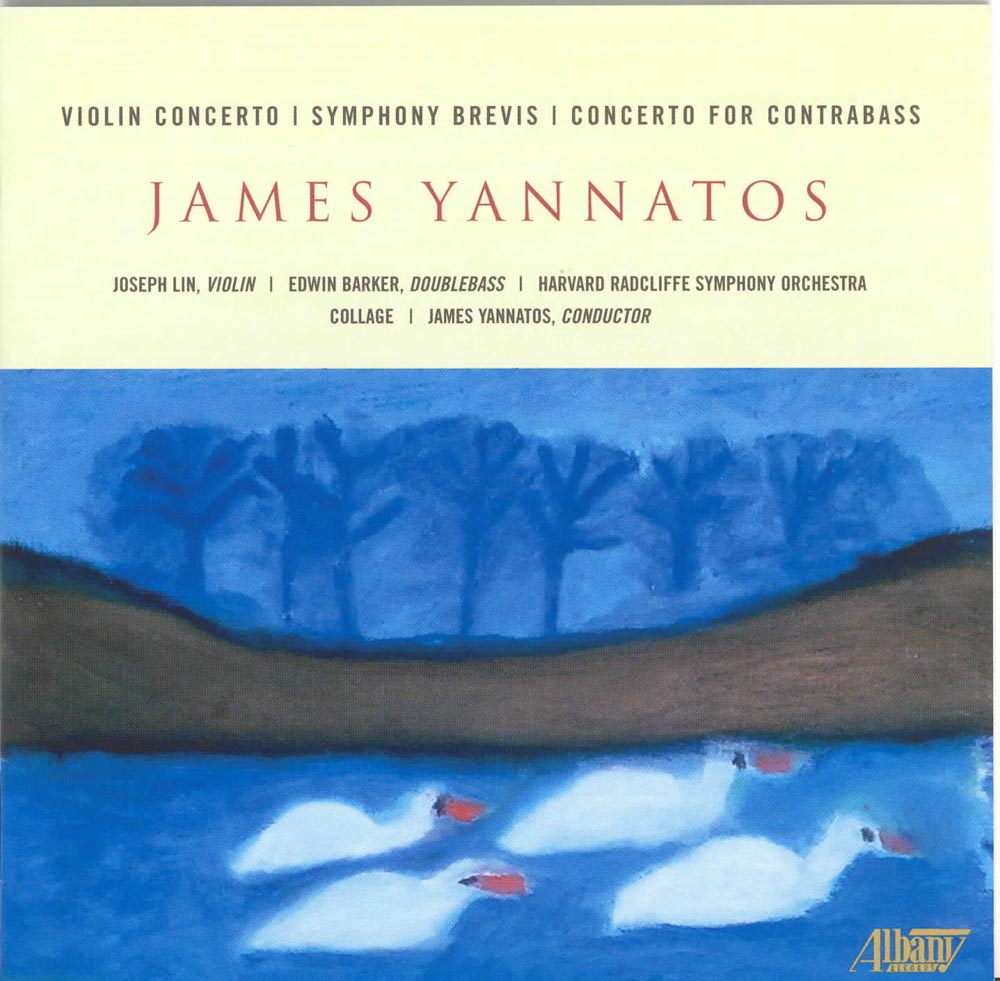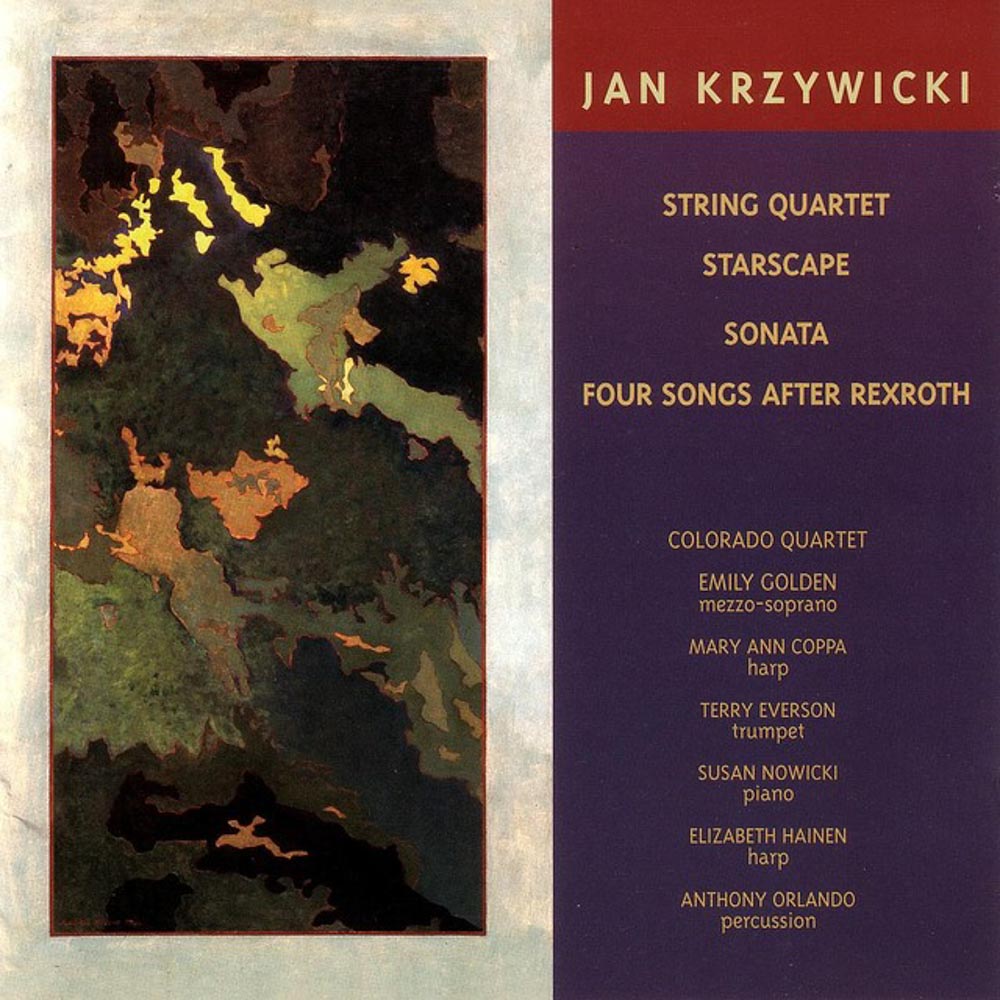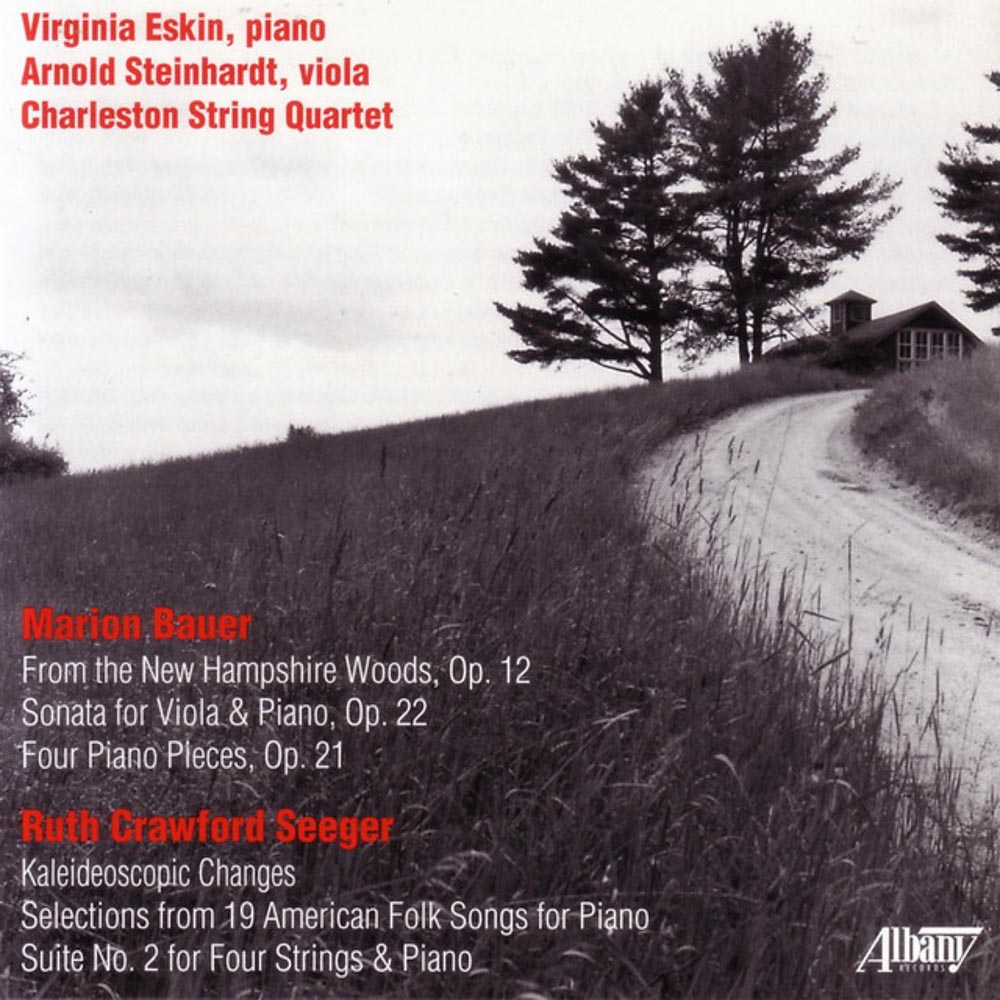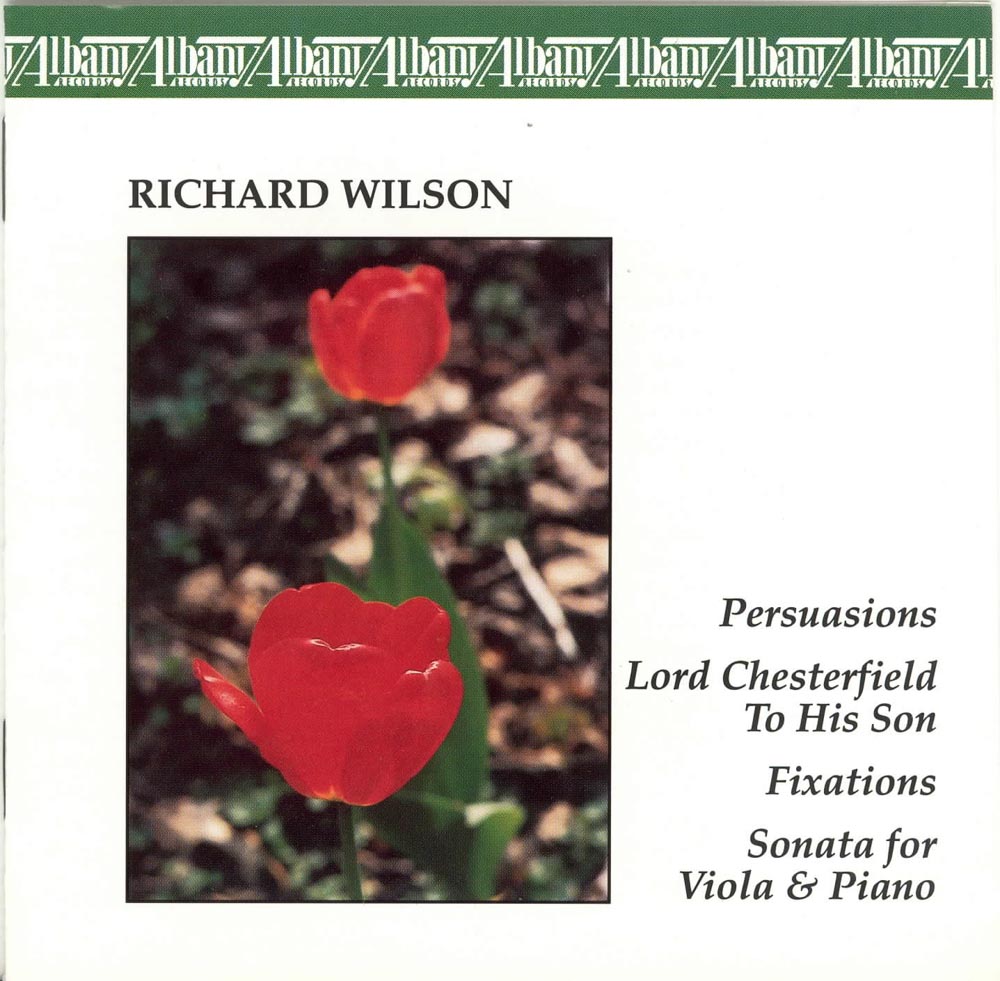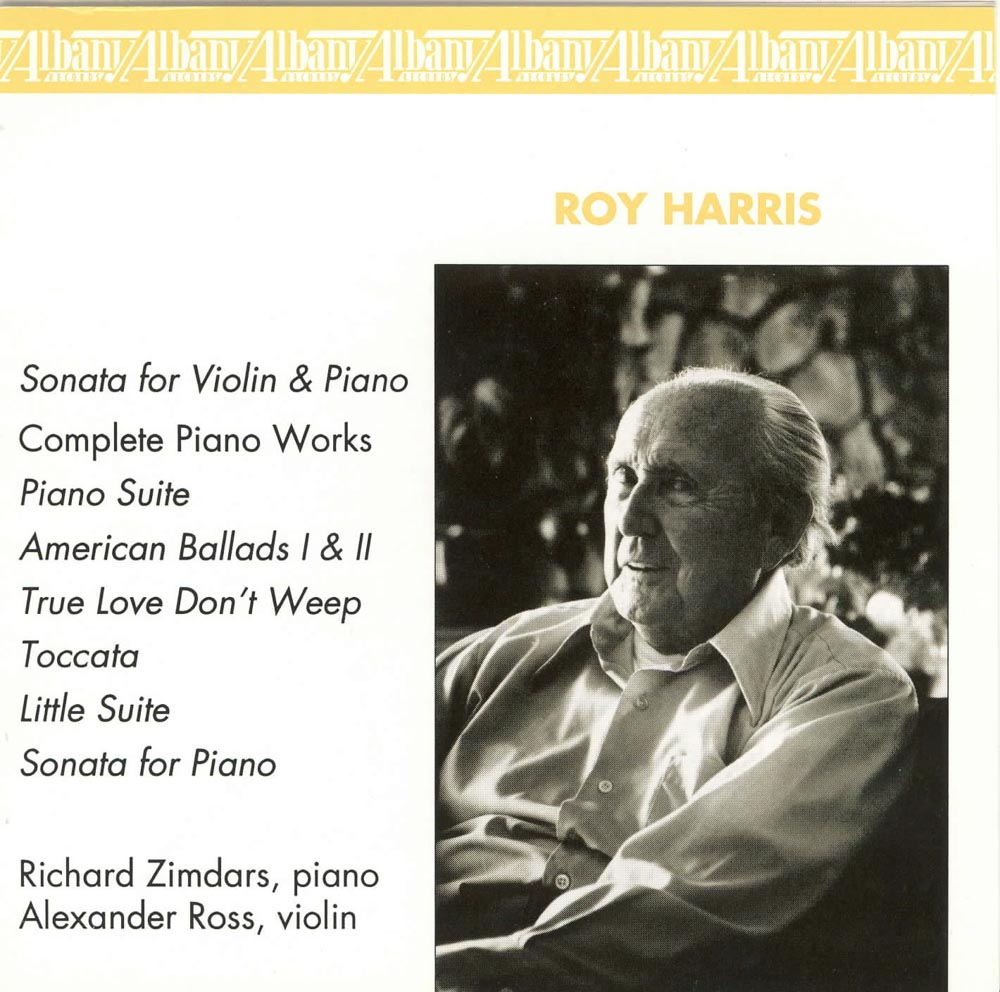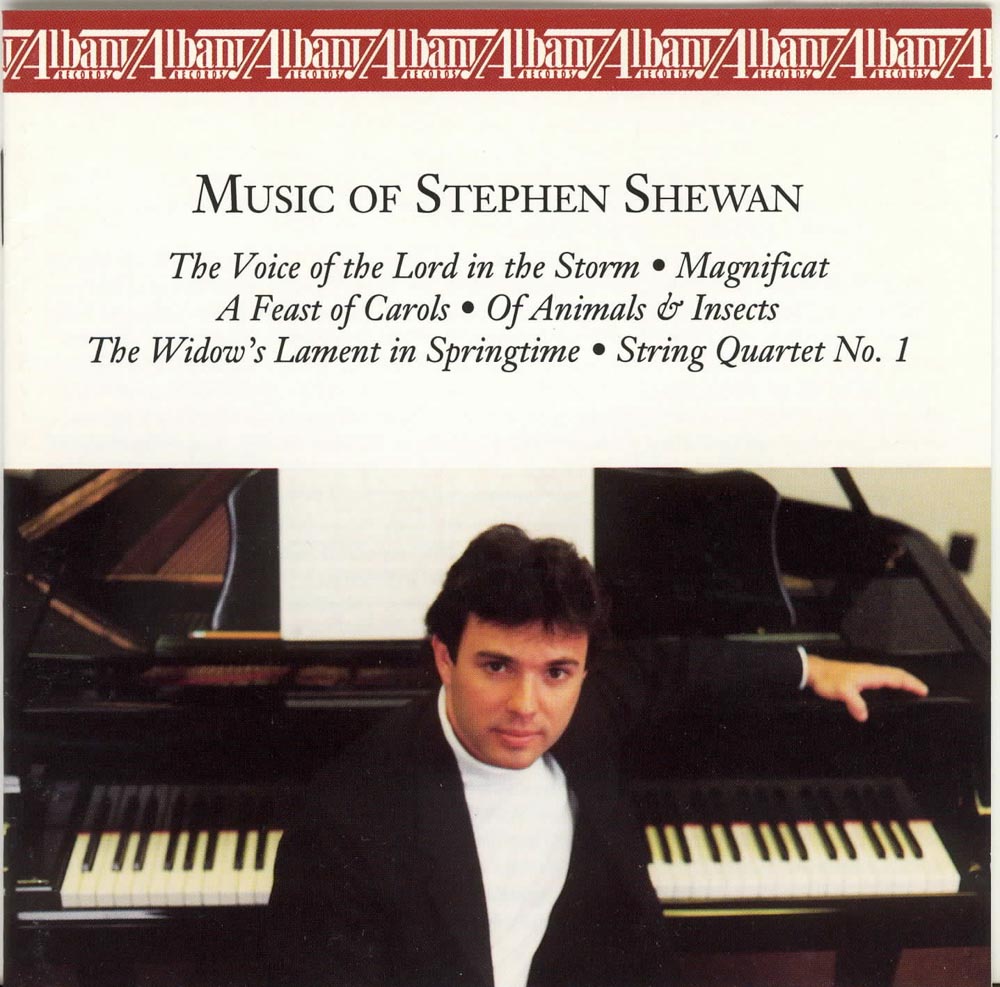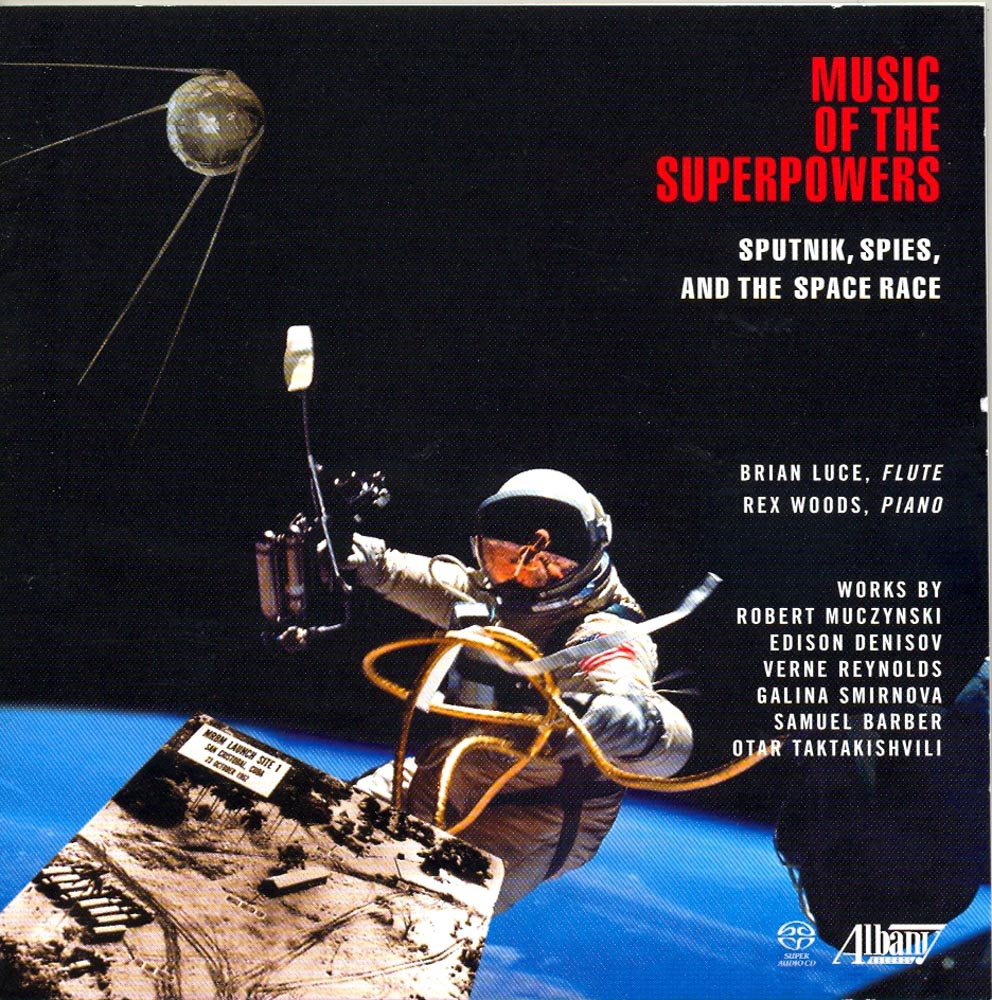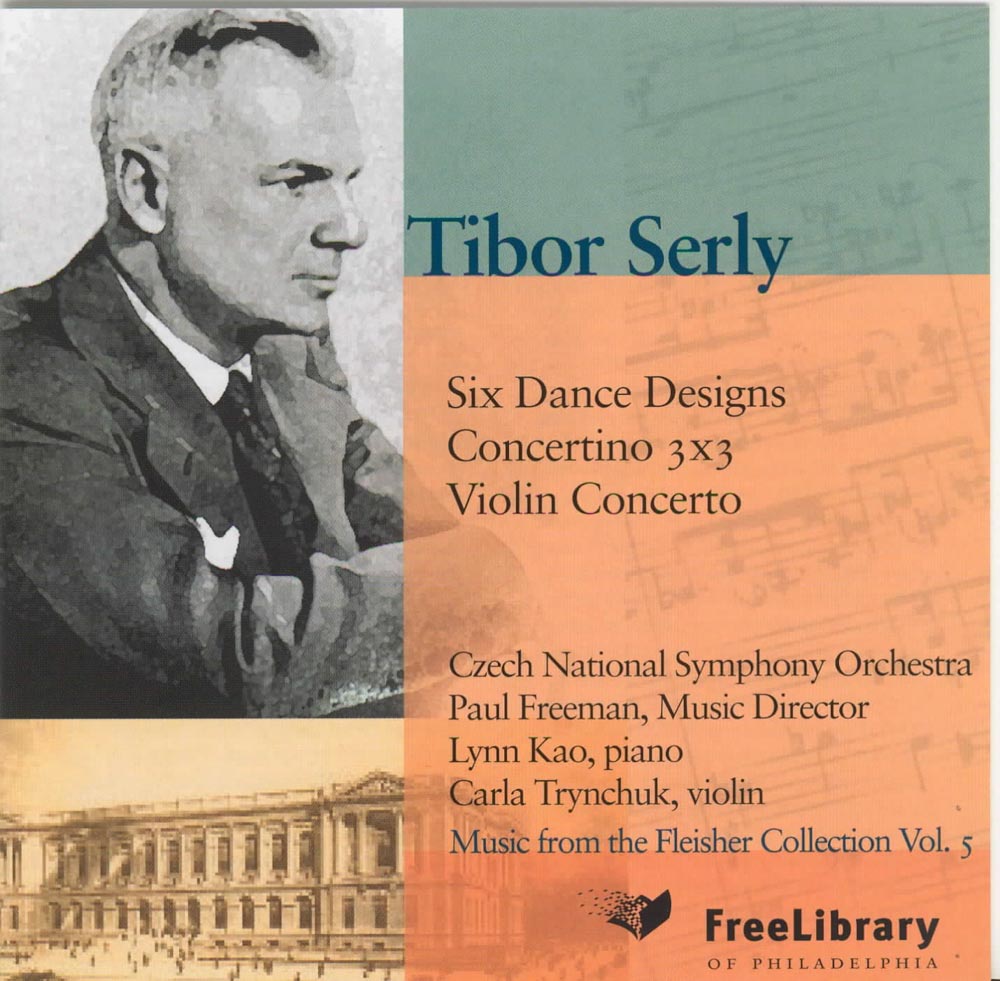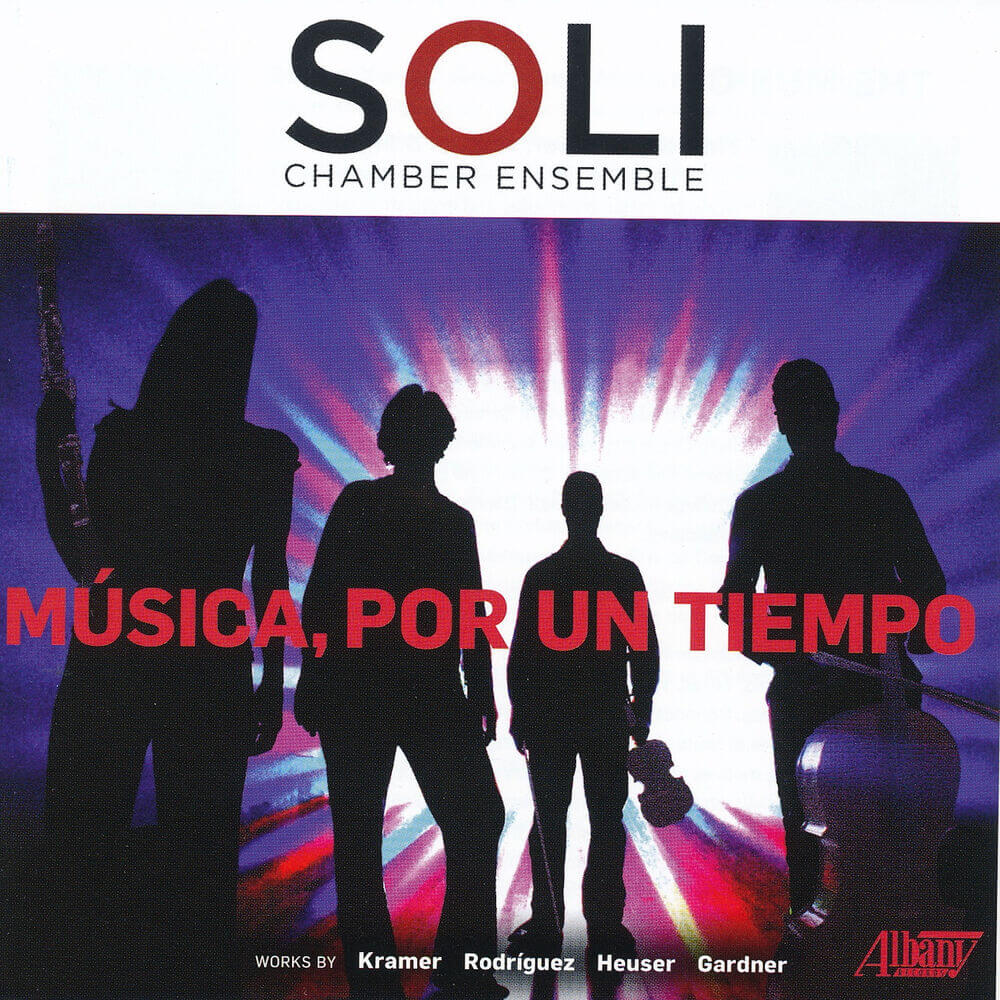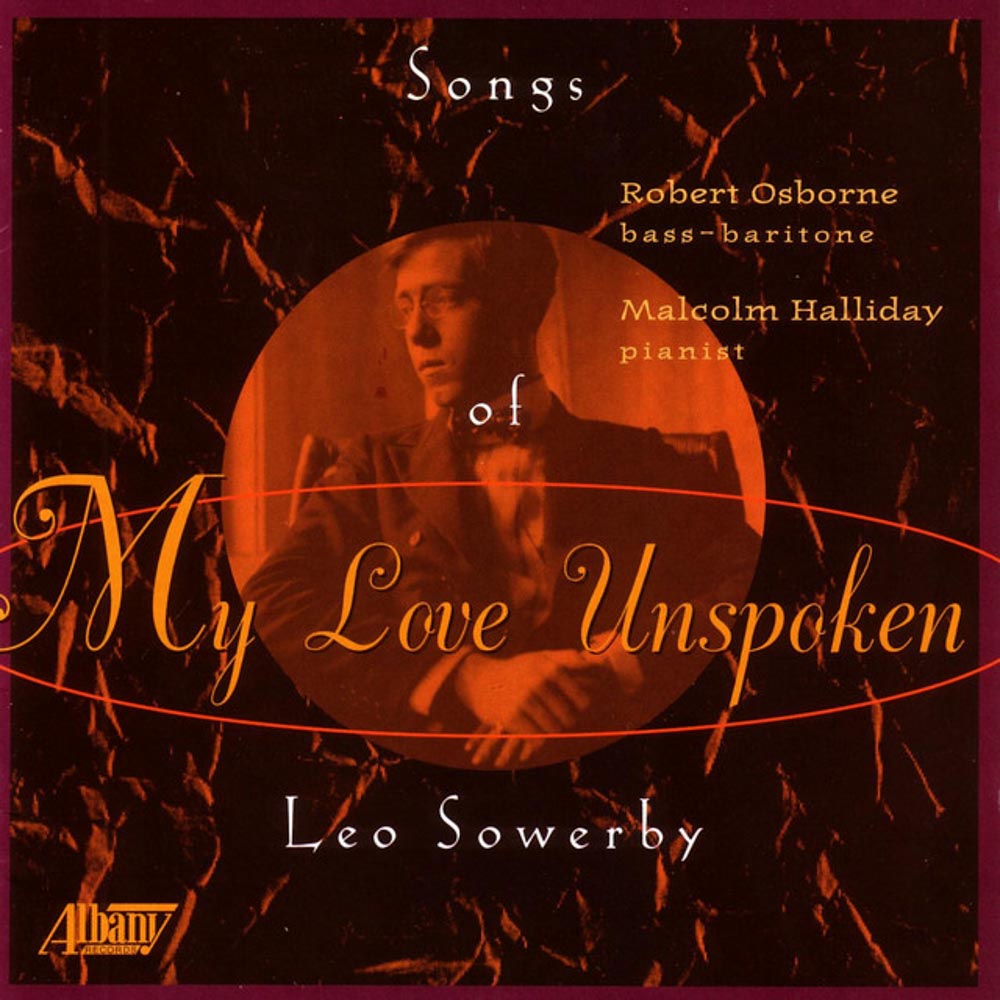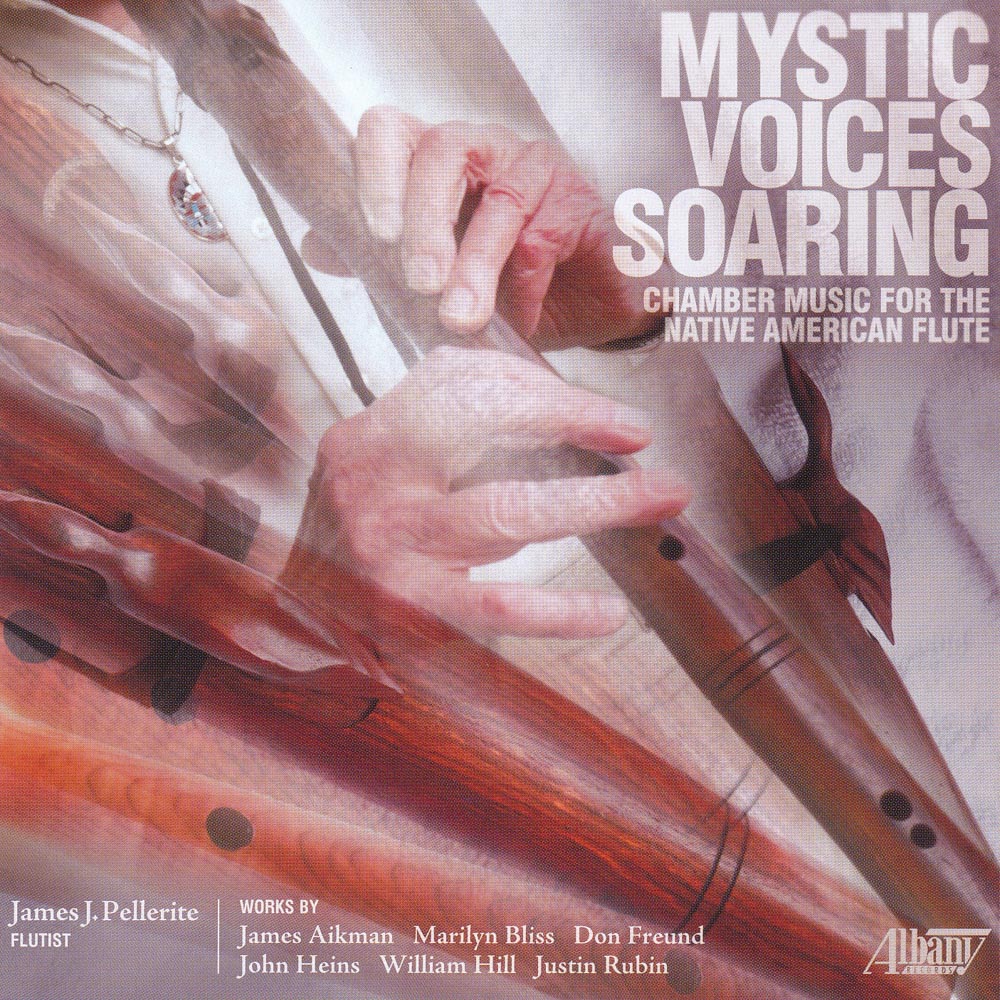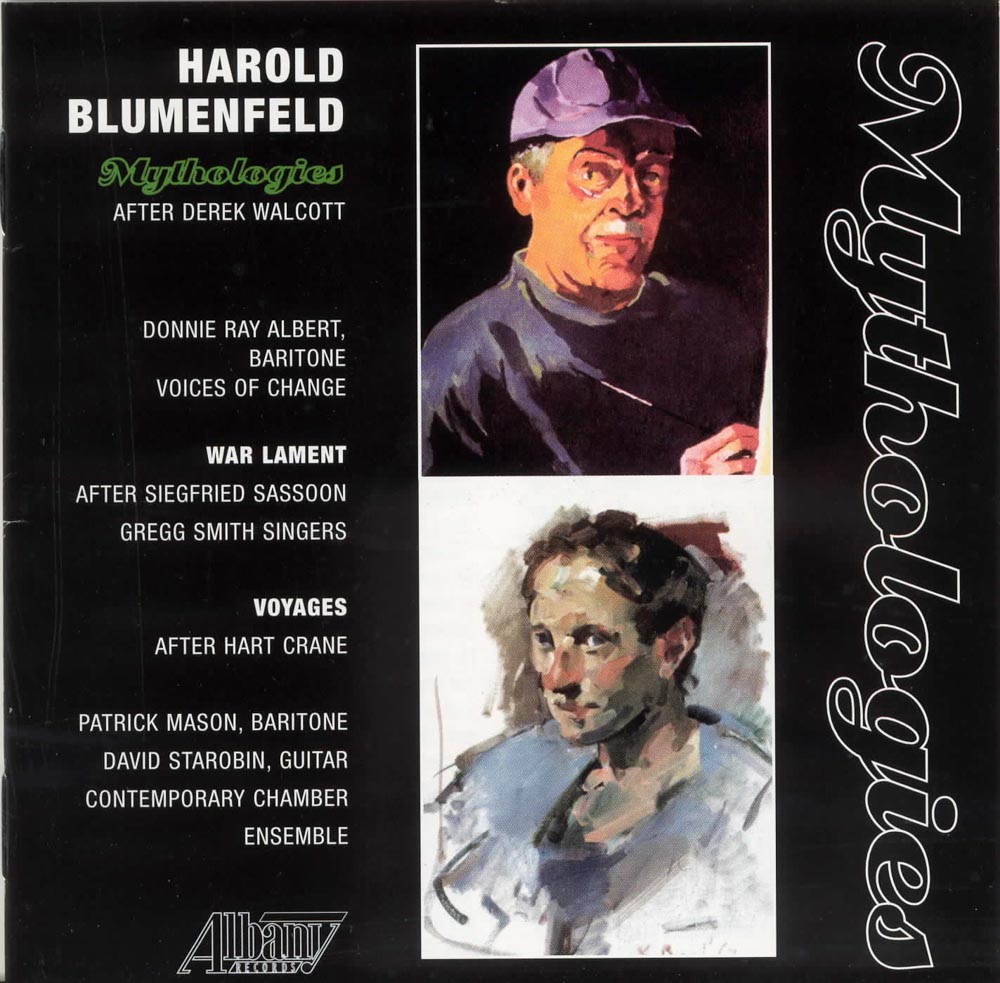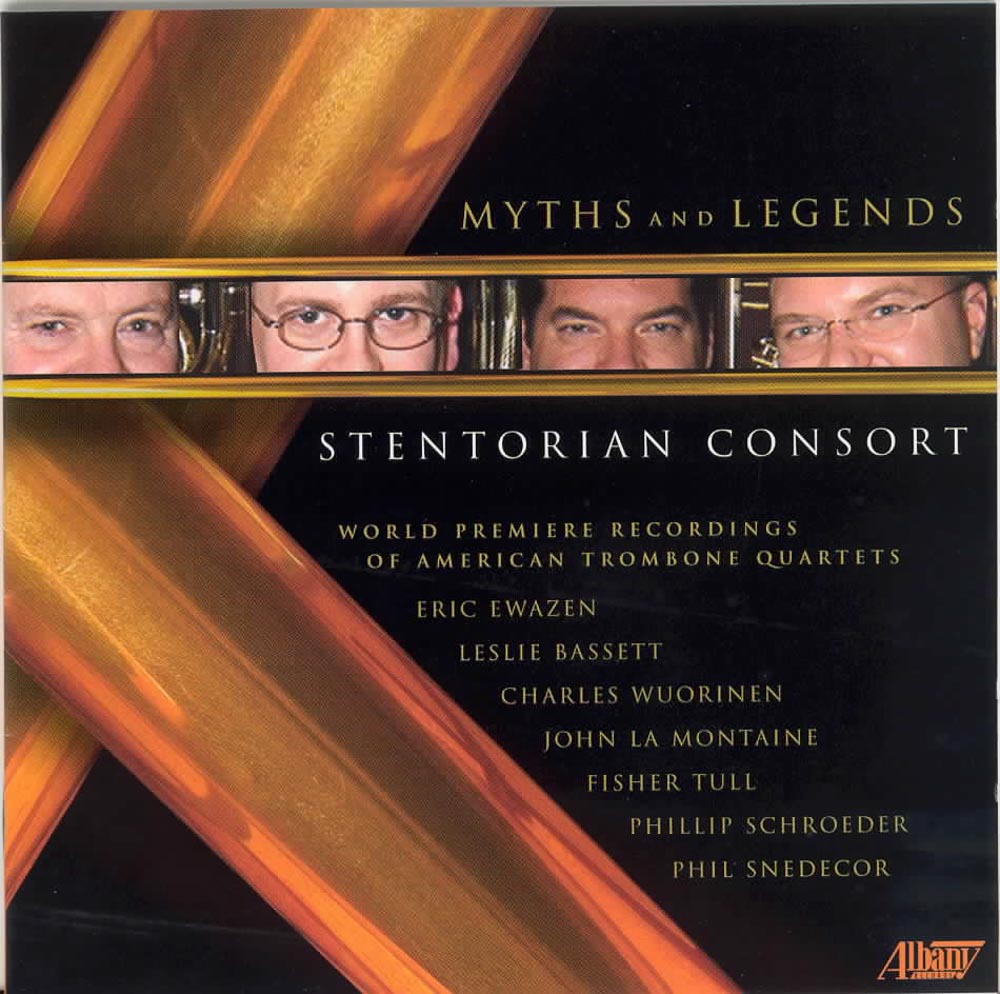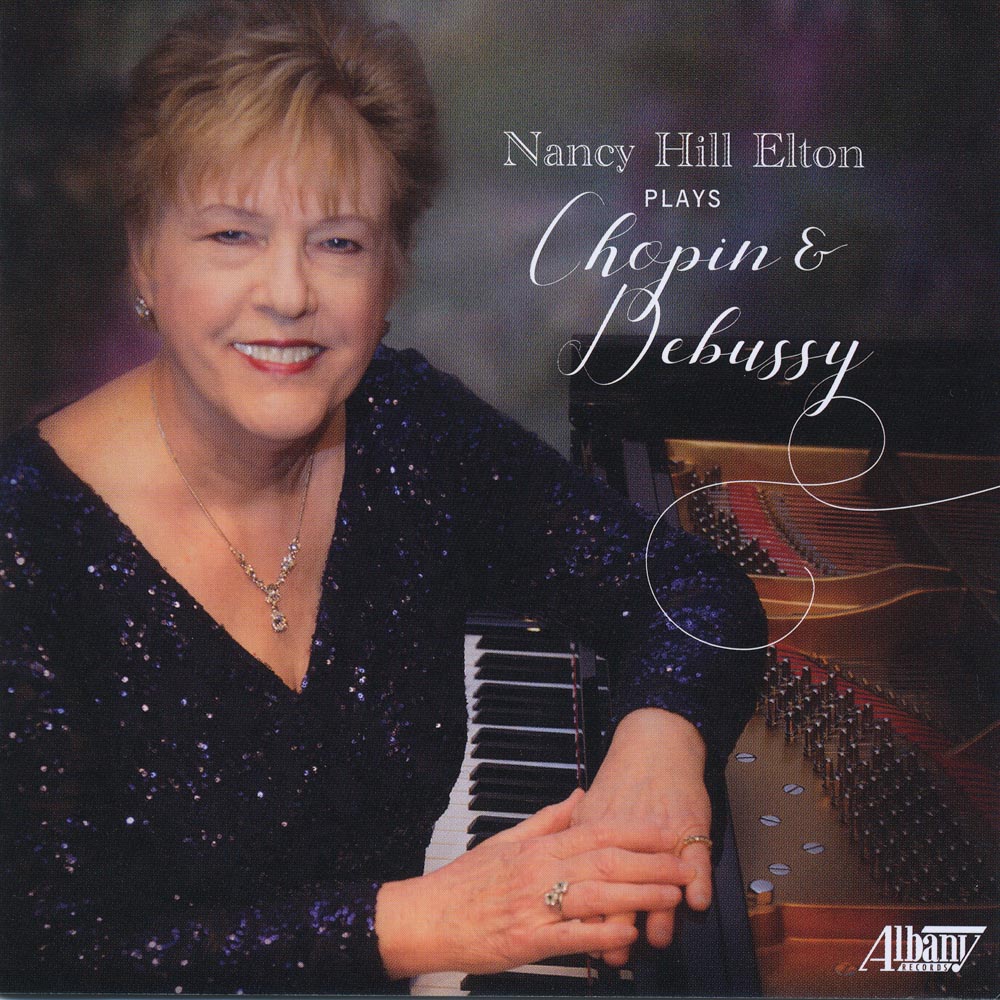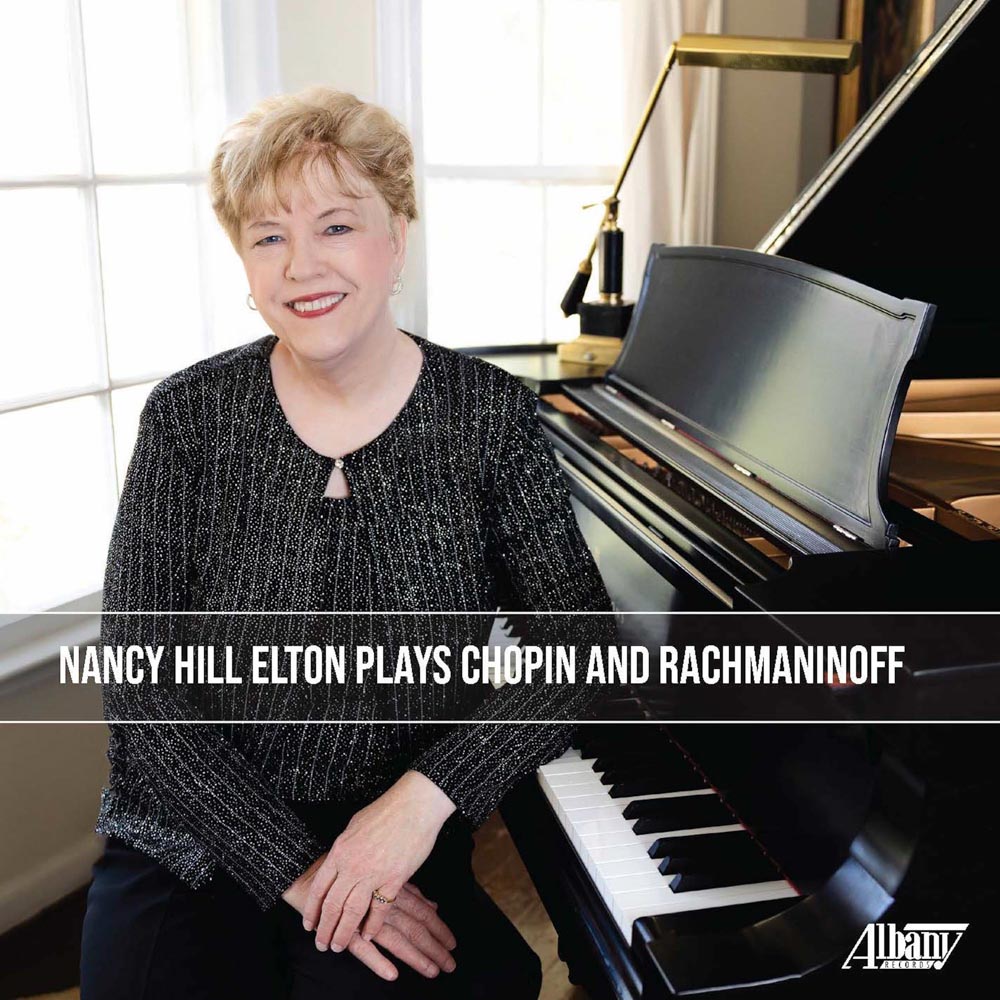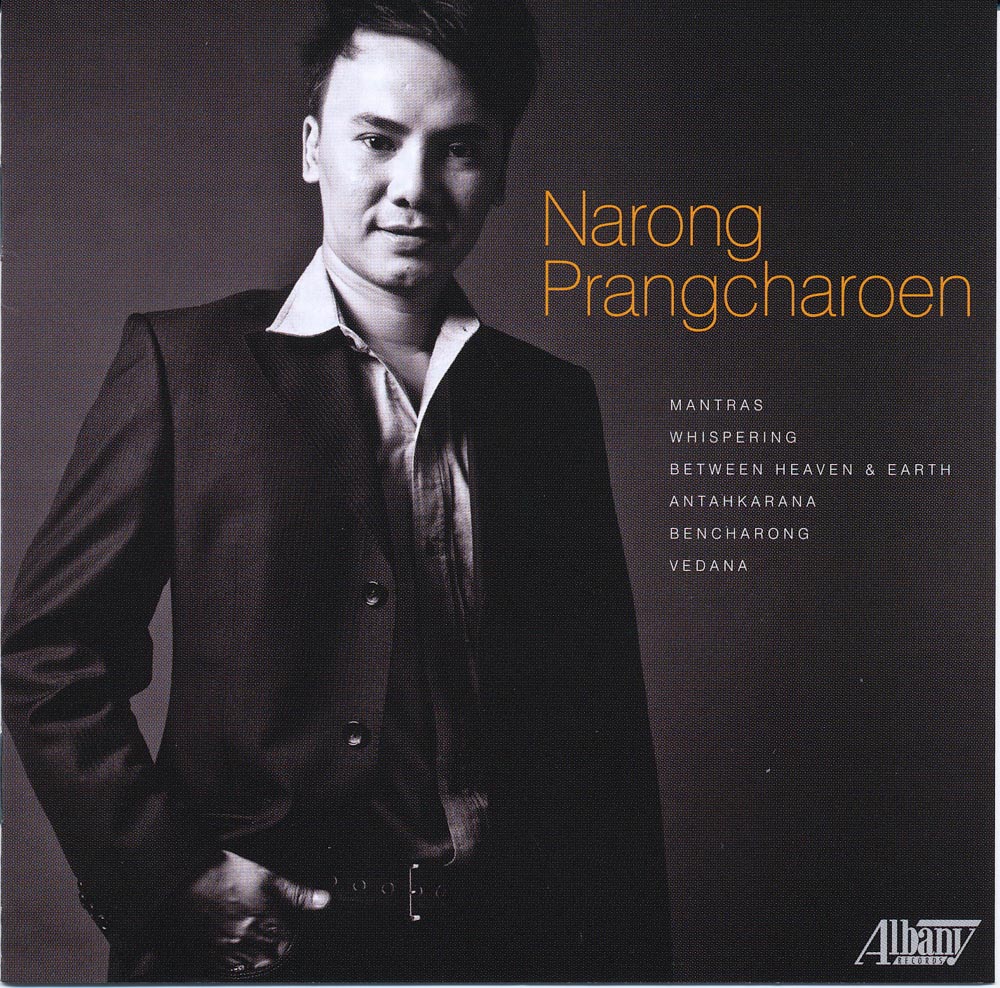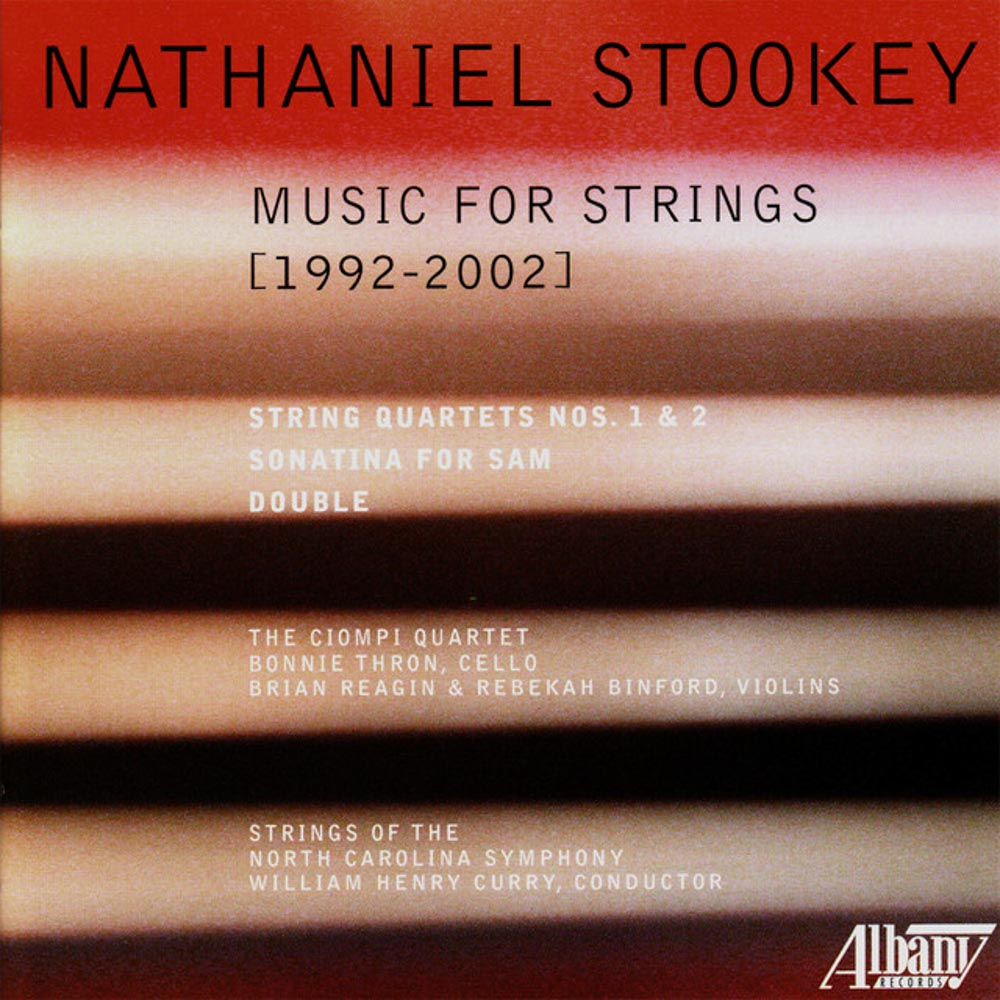Catalog #: TROY0370
Release Date: June 1, 2000OrchestralIt is obvious that Albany Records thinks highly of the music of the late American composer Buddy Bazelon, for other of his compositions appear on TROY54, TROY01, TROY74, TROY82, and TROY63. The Symphony No. 6 was composed in 1969. It was commissioned to celebrate the 100th anniversary of the founding of the Temple B'nai Jehudah in Kansas City, Missouri. The symphony exploits the link between the circumstances of its commission and the music Bazelon had written for the 1968 Jules Dassin feature-film documentary on the Six-Day War, Survival 67. The first performance was given by the Kansas City Philharmonic in November, 1970. Overture to Shakespeare's Taming of the Shrew was composed in 1960. It is based on music written for a production of The Taming of the Shrew by the American Shakespeare Festival Theater in 1957. The Overture already bears the fingerprints of the mature Bazelon style in its colorful orchestration and clearly etched musical profiles. Shakespeare's characters spring off the page and engage the listener in this effervescent and effective musical portrait. The first performance of the work was given by the National Gallery Orchestra conducted by Richard Bales in May, 1964. The Short Symphony was composed in 1961. The numbering Bazelon used for his Symphonies shows that he regarded this as his second symphony. The Short Symphony makes a quantum leap in focusing orchestral forces to create the bristling rhythmic energy that marks all of the composer's later scores. The first performance of the work was given by the National Symphony Orchestra conducted by the composer in December 1962. If you enjoy a big, 20th century, American orchestral sound, then this is a disc you will enjoy.
Catalog #: TROY0054
Release Date: March 1, 1992OrchestralSince the death of the American composer Irwin Bazelon in August 1995, there has been a marked increase in interest in his music. Three of his most representative works are included on this recording. "Spires" was composed in 1981. It was not premiered however, until February 6, 1989 by the Orchestre National de Lille with Harold Farberman conducting. The work is not a formal concerto for trumpet and orchestra but rather an orchestral composition with a large solo trumpet part including a written jazz-scat section against orchestral forces. "Trajectories" for solo piano with orchestra was composed in 1985. In this concerto, it was the composer's intention to avoid some of the 19th century mannerisms of solo instrumental works with orchestra, and, in this context avoid the traditional confrontation between piano and orchestra. The listener will also hear that the composer has attempted to exclude extensive virtuoso octave passages for the piano and to eliminate rapid arpeggios up and down the piano keyboard. About his work "Legends and Love Letters" the composer writes: "I have selected five Imagist poems of Hart Crane (c. 1920) that reflect this esteemed American poet's lyricism and nostalgic sentiment. It was my intention to capture in my music these essential elements, in addition to the bold dramatic statements that represent the contrasting counterpoint inherent in Hart Crane's poetry. In these pieces, I conceived the soprano part as a narrator's voice, singing the poet's lines through a small ensemble background, but always maintaining a soloist's position of dominance. Hart Crane's eloquent lyrical voice is primary; it must be allowed to occupy center stage."
Catalog #: TROY0363
Release Date: January 1, 2000OrchestralBuddy Bazelon died on August 2, 1995 at the age of 73. He composed nine symphonies and more than 60 orchestral, chamber and instrumental pieces. Born in Evanston, Illinois, he graduated from DePaul University with degrees in music. He studied with Hindemith at Yale and Milhaud at Mills College. From 1948 until his death he lived in New York City and Long Island where he had a retreat which was the perfect counterpoint for the tensions and hustle-bustle of urban life with which his rhythmically complex and often jazz-tinged music bristles. In his early years in New York, Bazelon supported himself by scoring documentaries, art films and theatrical productions. During the 50s and the 60s he composed more than fifty scores of this kind, which proved to be an invaluable preparation for his orchestral music. In a valedictory of sorts he wrote Knowing the Score: Notes on Film Music. Published in 1975, this book is widely used as a college text. As guest composer Bazelon frequently lectured at leading universities and music schools throughout the United States and England. Young people were especially drawn to his feisty spirit and no-nonsense approach to earning a living by applying compositional talents to the commercial world without sacrificing integrity. A long-time racing enthusiast, one of his best known works, Churchill Downs (Chamber Concerto No. 2) is named for the home of the Kentucky Derby.
Catalog #: TROY0835
Release Date: May 1, 2006OrchestralWe've been proud over the past several years to offer the chamber and orchestral music of James Yannatos on Albany Records, and this newest release offers an excellent sampling of his talents. Born and educated in New York City, he studied with Philip Bezanson, Nadia Boulanger, Luigi Dallapiccola, Darius Milhaud and Paul Hindemith. He also studied conducting with William Steinberg and Leonard Bernstein, and has been music director of the Harvard-Radcliffe Orchestra since 1964. The Violin Concerto was commissioned by the Pierian Foundation in honor of his 40th year at Harvard. The Symphony, loosely based on a twelve-tone theme, was influenced, as Yannatos says, "by the ragged, edgy rhythms of jazz filtered through the ears of a classical composer." The Contrabass Concerto is described as "a cross between the classical solo concerto, with its typical virtuoso technique, and the alternating 'ritornello' style of the Baroque solo concerto." Yannatos' music is exciting and colorful with a particularly "transparent" sound to the orchestration. The other releases of his chamber, choral and orchestral works can be heard on TROY241, 278, 366, 400, 516 and 638.
Catalog #: TROY0337
Release Date: August 1, 1999ChamberA native of Philadelphia, Jan Krzywicki has studied with, among others, Vincent Persichetti, Nadia Boulanger and Darius Milhaud. He is active as a composer, conductor and educator. Since 1990 he has been conductor of the Philadelphia contemporary ensemble Network for New Music. He is a professor of music theory at Temple University, teaching courses in analysis, performance practice, and ear training.
Catalog #: TROY0099
Release Date: September 1, 1993ChamberJay Weigel was born in New Orleans and graduated from Tulane University in 1981, while studying composition privately with Roger Dickerson. After receiving a Masters of Music Degree in Composition from the University of Southern California, he returned to New Orleans. In 1984, he was appointed Music Director of the Contemporary Arts Center and Lecturer of Composition and Theory at Xavier University. Most recently, Weigel's work on the R.E.M. hit album "Out of Time" earned him a quadruple-platinum award. About his music, he writes: "The music on this compact disc was composed between 1987 and 1992. This music documents a period of personal discovery and revelation. As I wrote each work, I felt a step closer to discovering the elusive voice I've always strived to find. That voice is ultimately expressed through my use of the raw musical material present in New Orleans and its music. My personal experience with New Orleans music has shown me the wealth present in its musical culture, a culture that served as the catalyst for all modern, popular music; a culture whose melodic improvisations spawned jazz; a culture whose rhythmic patterns breathed new life into the field cries that turned into the Blues as it made its way up the Mississippi River to Chicago; a culture whose musical traditions are passed from parent to child and friend to neighbor; a culture still growing, experimenting, playing and influencing music world-wide; a culture whose emphasis on acoustic instrumentation defies the vagaries of modern electronic renderings; a culture relatively untapped by most composers working in the written tradition. The compositions on this disc reflect my New Orleans spiritual heritage. They reflect the unique feel of heart-pounding parade drumming, the smell of fresh rain on the sub-tropical streets; the unique blast of a heavy left hand on an upright piano." Wisdom from program notes on a CD and fine, accessible music as well.
Catalog #: TROY0756
Release Date: May 1, 2005ChoralJohannes Somary has achieved international prominence as conductor, composer, and organist. He is now in his 44th season as founder and Music Director of AmorArtis in New York. As a composer, he has won critical acclaim for his oratorios Ballad of God and His People and The Ultimate Quest as well as his dramatic cantata Is This Life?, given its premiere at the Kennedy Center in Washington, DC in 1994. As an organist he has received critical acclaim for his recording of the Handel concerti. As a teacher, he served for nearly four decades as chairman of the arts-and-music department at Horace Mann School. He is currently artist-in-residence at the Church of the Blessed Sacrament in New York City and in his 30th year as conductor of Connecticut's Fairfield County Chorale. He was born in Zurich, Switzerland and graduated from Yale University. The composer writes: "Taroko Concerto for Violin and Orchestra, is so named because much of the melodic material first came to me on walks with a friend in a little mountainous region of Taiwan called Taroko. It was composed during the two months following my departure as music director of Saint Patrick's Cathedral in New York. It was completed in October, 2003 and is in four movements. Easter Fantasia was first composed as a sonatina for trumpet and organ. In this form it was frequently performed by Martin Berinbaum, with me at the organ. It was re-designed for trumpet and orchestra in February, 2004. Much of the thematic material is based on Gregorian chants proper to the Easter season. The ancient hymn of thanksgiving known by its first two words, Te Deum, is still sung at the end of Matins on Sundays and on major feast days in convents, monasteries, and some churches all over the world. It is a jubilant hymn of praise to the Almighty. The Te Deum for the Millennium, which was commissioned by the International Order of Benedictines, was composed in 1999 and premiered in New York on May 23, 2001. The work is a celebratory cantata scored for soloists, chorus and chamber orchestra."
Catalog #: TROY0199
Release Date: September 1, 1996ChamberJohn Davison (b. 1930) grew up in upper New York State and New York City. He studied music at the Juilliard lower school, Haverford College, Harvard and Eastman. Among his teachers were Randall Thompson, Walter Piston, Bernard Rogers, Howard Hanson and Alan Hovhaness. He has taught at Haverford College since 1959. His musical idiom is rooted in the great Western classic-romantic tradition with Baroque, Renaissance, jazz, modernist and folk elements mixing in at times. His Sonata for Horn and Piano was composed for the bicentennial of Franklin and Marshall College in 1987. It is a big, romantic work. The Sonata No. 1 for Violin and Piano was composed for the violinist who performs it on this disc, Carol Stein Amado, who gave the work its premiere in the Carnegie Recital Hall in 1976. All the works on this disc are receiving their world premiere recordings. Mr. Davison's music is most pleasing and can be easily enjoyed by anyone who has an interest in twentieth century American music.
Catalog #: TROY1566
Release Date: May 1, 2015ChamberBritish composer Jonathan Harvey (1939-2012) was a Harkness Fellow at Princeton and Professor of Music at Stanford University in addition to his positions at Sussex Un9versity. An invitation from Pierre Boulez to work at IRCAM in the early 1980s set the composer on a path that has characterized his whole career, and which has resulted in eight realizations at the Institute and two for the Ensemble Intercontemporain. His music has been showcased at all the major new music centers and festivals. The works on this recording, all performed by the illustrious New York New Music Ensemble, include a work for solo clarinet; one for clarinet and piano; a trio for violin, cello, and piano; one for flute, clarinet, and piano; and one for flute, clarinet, cello, piano, and percussion.
Catalog #: TROY0023
Release Date: December 1, 1989VocalJoseph Fennimore lives, composes and performs in the Albany, New York area. This release is the perfect introduction to his music. As the title suggests, Berlitz: Introduction to French has a text which is taken from the "Berlitz: French for Travelers." As a song cycle, the songs depict the adventures of an American tourist in France. As music, they show Fennimore's absolutely delightful sense of humor. Inscape is defined by Hopkins as the particularity and essence of any object or occasion discovered by the poet after keen emotional involvement and careful scrutiny. The Seven Songs of Inscape are not a cycle but a group of settings that sprang from Fennimore's admiration for Hopkins' poetry and sympathy with Hopkins' belief that our sorrows mainly spring from within, while joy is to be found in spiritual harmony with the beauties of the physical world. The settings were composed in 1973 and 1977. The Six Songs were composed in 1976, 1977 and 1984. Eventide is based on a short story of the same name by James Purdy. The composer adapted the libretto. The opera occurs during the interval from dusk to nightfall. The action takes place in a sitting room of a modest cottage in the depression South and tells a sad and poignant story of a mother's loss of her children; to death and circumstance.
Catalog #: TROY1393-94
Release Date: January 1, 2013ChamberLaura Kaminsky is an astute and voracious listener. For decades, the journeys her ears have taken have benefited audiences in her native New York City through all the concert programs she has presented at venues like Town Hall, the 92nd Street Y, Miller Theater, Weill Recital Hall at Carnegie Hall, Roulette, The New School, and Symphony Space, where she currently serves as Artistic Director. But in addition to the staggering amount of music of others she has made available to the public, she has also crafted a formidable oeuvre of original musical compositions that are deeply individual responses to the world around her. Social and political themes have been common in Kaminsky's work, as has an abiding respect for and connection to the natural world. Her music has also been deeply informed by her extensive travels -- from Eastern Europe and West Africa, to throughout the Americas. All seven works featured in this recording -- the first devoted exclusively to her music -- share common elements. Prevalent is the persistent use of irregular rhythms, repeating patterns that shift constantly as well as the narrative aspect of the solo and chamber works.
Catalog #: TROY0465
Release Date: September 1, 2001ChamberThe fascinating career of composer, author, critic, and music professor Marion Eugenie Bauer developed from her initiative and steadfast determination to forge a professional life in music. Born in Walla Walla, Washington, the youngest of seven children of Jacques Bauer, a shopkeeper, and Julie Bauer, a teacher of modern languages. After her father died in 1890, the family moved to Portland, Oregon, where, according to Bauer her oldest sister, Emilie, "became literally the father of the family, working with my mother to give the younger brothers and sisters an education and every opportunity for cultural development. To her I owe the fact that I went into the serious study of music." A music critic for the Portland Oregonian as well as a composer and teacher, Emilie was able to build a career as a critic, first in Boston and then in New York. In 1898, Marion joined her sister in New York where she continued her studies with Henry Holden Huss. In 1906 she sailed for Paris where she studied with Nadia Boulanger. She continued to study both in New York and Berlin and by 1912, had established herself as a composer. At 40 she decided she still needed more training so she returned once again to Paris to study with Andre Gedalge who had taught both Ravel and Milhaud. "As a member of the American Music Guild, I had the opportunity to measure my powers and my limitations with those of my colleagues...The result was a period of study in Europe". In 1926, her sister Emilie became ill and died, so Marion moved back to New York. She was hired by New York University as an instructor of music. She remained at NYU until 1951. She also taught part time at Juilliard from 1940.
Catalog #: TROY0297
Release Date: September 1, 1998ChamberMarion Bauer and Ruth Crawford Seeger began their life-long friendship in the summer of 1929, when both enjoyed privileged living at the MacDowell Colony in Peterborough, New Hampshire - a haven for American artists since 1907. At a time when women in music had to face down Victorian stereotypes of dilettantism and sentimentality, the MacDowell Colony provided "a room of one's own." A Peterborough regular, Bauer came for her first visit in 1917. Within two days of arriving for what would be her only stay there, Crawford wrote how it was "glorious to be working again...I never knew the moon and stars could come inside me so." Considering their historical reputations, few people would suspect the meeting points between these two composers - Bauer, representing what Carol Oja in her forthcoming book calls the "forgotten vanguard," and Crawford, known today as a pivotal figure in the radical "ultra-modern" movement. But back then, both believed strongly in the manifest destiny of a similar kind of modernism: both spent the 1920s exploring frontiers of harmony; both greatly admired Scriabin, taking his mystical impressionism as their starting point; and both were influenced by transcendentalist aesthetics. After hearing some of Bauer's piano preludes, Crawford recorded her impressions in her diary: "I am bewildered by the strangeness of the experience, by our affinities. Our manner of building, our feeling very strongly the spirit of our work, our strengths and weaknesses - in all these, though we are individuals, yet we are very close. Though we have only just met, yet our spirits have been friends for years." And now their musics are joined on this beautifully performed new disc. There is no greater proponent of this music than Virginia Eskin, a proven, superb American artist.
Catalog #: TROY0074
Release Date: March 1, 1993ChamberRichard Wilson was born in Cleveland and studied piano, cello, theory and composition at the Cleveland Music School Settlement. In 1963, he graduated from Harvard and took his mater's degree in music composition at Rutgers in 1966. It was at this point that he joined the Vassar faculty, where he is currently Professor of Music. In 1992-93, he was the Composer-in-Residence with the American Symphony Orchestra. In that same year, he was also a Guggenheim Fellow. For those not familiar with Wilson's music, it is not avant-garde, nor is it abashedly tonal. It is well crafted and beautifully performed on this disc. Note the number of excellent musicians who perform on this disc including the great cellist, Fred Sherry, the great English flutist, John Solum, and Walter Trampler, one of the greatest violists who ever lived.
Catalog #: TROY0779
Release Date: September 1, 2005ElectronicRobert Morris is presently chair of the composition department of the Eastman School of Music, where he is Professor of Composition and affiliate member of the theory and musicology departments. He is a recipient of grants from the National Endowment for the Arts, the Hanson Institute for American Music, the American Music Center and the American Council of Learned Societies. His music has been performed in North America, Europe, Australia, China, Taiwan and Japan. Morris has written music for a wide variety of musical forms and media. He has composed over 140 works including computer and improvisational music. Some of his output from the 1970's is influenced by non-Western music and uses structural principles from Arabic, Indian, Indonesian, Japanese and early Western musics. While such influences are less noticeable in more recent works, the temporal and ornamental qualities of Eastern music have permanently affected Morris' style. In addition to his music, Morris has written many articles and reviews that have appeared in scholarly music journals contributing to theories of musical analysis and aesthetics, compositional design, electronic and computer music, and Indian music. He is also co-editor of Perspectives of New Music.
Catalog #: TROY0105
Release Date: November 1, 1993ChamberRoy Harris's life (1898-1979) was a singular phenomenon: humble beginnings on the family farm; truck driving to support his musical studies; study in Paris with Nadia Boulanger supported by a patroness; performances of his symphonies by Koussevitzky, Toscanini, Ormandy, and Bernstein; a series of academic positions around the country; marriage to a brilliant pianist; a large family of his own; and hard work up to the end of his days. Today's foremost authority on the life and works of Harris, musicologist Dan Stehman, has this to say about the piano works: "...the piano pieces reveal Harris's exceptional skill as a miniaturist, working concisely and unpretentiously to create clearly defined moods. For many listeners these compositions have served as the initial introduction to his music and, indeed, they remain one of the easiest approaches to his style and technique." In 1942 the Sonata for Violin and Piano was awarded the Elizabeth Sprague Coolidge Medal for eminent service to Chamber Music. Yehudi Menuhin, Josef Gingold, Henri Temianka, Sidney Harth, and Eudice Shapiro are among the distinguished violinists who have programmed it. Although Harris sanctioned cuts in the first and last movements, the performance recorded here presents the sonata in its entirety.
Catalog #: TROY0149
Release Date: April 1, 1995ChoralThis is a recording devoted exclusively to the music of the young American composer Stephen Shewan. Shewan was born in Warsaw, New York in 1962. He is a graduate of Robert Wesleyan College and Ithaca College. He studied composition with Samuel Adler at the Eastman School of Music while pursuing his doctorate in music education. His is a fresh voice which Albany Records is pleased to bring to your attention. Shewan composes in an accessible idiom that should appeal to a broad audience.
Catalog #: TROY1059
Release Date: December 1, 2008InstrumentalThis fascinating program of music for flute and piano juxtaposes composers from the US and Russia whose compositions were all written during the sixties at the height of the Cold War. Composers in the US were subject to very different influences and pressures than their colleagues in the Soviet Union and the music reflects these influences as well as the turbulent decade of the 1960s. Beautifully performed by flutist Brian Luce and his pianist Rex Woods, the recording is a super audio compact disc.
Catalog #: TROY0876
Release Date: October 1, 2006OrchestralTibor Serly will always be associated with Bela Bartok. It was Serly, after all, who gets credit for completing the older composer's Piano Concerto No. 3 and virtually composing the Viola Concerto based on Bartok's outlines and editorial decisions. But Serly, who was born in Hungary and died in London, was a composer of intriguing talent, an excellent violist, violinist and conductor, a musical theorist and was sought-out by students as a teacher. A pupil of Zoltan Kodaly, Leo Weiner and Jeno Hubay, he would eventually play as both violist and violinist in the Cincinnati Symphony under Reiner, the Philadelphia Orchestra under Stokowski and later in the NBC Symphony under Toscanini. His music is in the robust, harmonically spiky tradition we associate with 20th Hungarian composers. Of particular interest is the Concertino 3X3 (pronounced "3 times 3"). As the composer explained: "Concertino 3X3 is at once a Concertino for Solo Piano in three movements; it is also a Concertino for Orchestra, alone; but when played together simultaneously, it is converted into a Concertino for Solo Piano and Orchestra. Thus, in actual performance, one hears three different compositions." This is all fascinating, vital music, and this new release from the enterprising Paul Freeman will allow everyone to appreciate the freshness of Tibor Serly's voice.
Catalog #: TROY1505
Release Date: September 1, 2014ChamberSOLI Chamber Ensemble, which includes Stephanie Kay, clarinet; David Mollenauer, cello; Ertan Torgul, violin; and Carolyn True, piano, was founded in 1994 and has been shattering stereotypes for classical music since then. This award-winning ensemble (recipient of the 2013 CMA/ASCAP award for Adverturous Programming, presents concerts featuring underappreciated giants of the modern and contemporary classical repertoire, plus they annually commission new works by emerging and established composers. Their dynamic performances are heard on this disc of four world premiere recordings all commissioned by SOLI. The music on this recording includes Timothy Kramer's Cycles & Myths, written in 1996; Robert Xavier Rodríguez's Música, por un tiempo (2008); David Heuser's Catching Updrafts; and Alexandra Gardner's Crows.
Catalog #: TROY1875
Release Date: September 1, 2021InstrumentalThis recording reflects aspects of a mutual intersection and continual development between pianist David Holzman and composer James Ricci, touching upon both musical and personal connections over the course of a lifetime. They shared similar musical backgrounds and experiences, but didn't know each other personally until 2015 and began a formal collaboration. Holzman has premiered the majority of Ricci's works on this disc. James Ricci studied at the Berklee College of Music, New England Conservatory and Brandeis University. His music has been performed by soloists and chamber ensembles, including Kenneth Radnofsky, the Lydian String Quartet, Collage New Music, and Solar Winds, among many others. David Holzman has been hailed as a "master pianist" and is the recipient of numerous honors and awards. He is an advocate for music of the 20th and 21st centuries and is especially noted for his performances of the music of Stefan Wolpe. A graduate of Mannes College of Music and Queens College, he is on the faculty at C.W. Post Campus of Long Island University.
Catalog #: TROY1303
Release Date: October 1, 2011ChamberBarbara White's music subverts our presumptions and compels us to alter the way we listen, to discard tired preconceptions and generic expectations. She projects a sense of stillness in the midst of intense activity and activity within stillness: we are directed to find the calm center in the furiously moving; alternately, we are invited to listen deeply and actively to the quieter music, to sense a vast reservoir of unexpressed energy, to enter the depths of reverberaÂtion and enjoy the subtle decay of harmonics, to be thrown off balance by an unexpectedly delayed or anticipated attack. This music of transparent density and dense transparency compels us. Its surprises enlighten rather than shock. White's music has been presented by ensembles such as the Orchestra of St. Luke's Chamber Ensemble, Earplay, eighth blackbird, and janus. Honors and awards include a Fellowship from the Radcliffe Institute for Advanced Study, three awards from the American Academy of Arts and Letters, and a 2003 Guggenheim Fellowship. Ms. White is Professor of Music at Princeton University.
Catalog #: TROY0196
Release Date: October 1, 1996VocalLeo Sowerby, whose loving sobriquet is "the Handel of Lake Michigan," lived most of his life in Chicago. He composed 550 works in all forms save ballet and opera and was the recipient of both the Pulitzer Prize and the Prix de Rome. His works were premiered by such illustrious musicians and Organizations as Serge Koussevitsky, E. Power Biggs, the Paul Whiteman Orchestra, and the Chicago and Boston Symphony Orchestras. His 122 songs, 21 of which are heard on this disc, composed between 1909 and 1966, straddle a critical transitional period in American art song history. His earliest songs reflect the parlor and sentimental styles that were prevalent in the first decades of this century. His compositional training and his beloved models were from the French school, rather than the more dominant German school that then held sway over American concert and educational life. But by the early 1920s Sowerby's personal and American voice, founded on his prairie roots, was clear in his songs. This unique voice is heard to magnificent effect in the lovely songs contained on this recording.
Catalog #: TROY0393
Release Date: August 1, 2000VocalLori Laitman was graduated magna cum laude, with honors in music, from Yale College, and received her M.M. in flute performance from Yale School of Music. Her principal composition teachers were Jonathan Kramer and Frank Lewin. Her initial compositional focus was writing music for film and theater; in 1980, she composed the score to The Taming of the Shrew for the Folger Theatre in Washington. Since 1991, she has concentrated on composing for the voice. The works on this CD, for voice with a variety of accompaniments, reveal Ms. Laitman's ability to capture and highlight the spirit of each individual text.
Catalog #: TROY1607
Release Date: December 1, 2015ChamberFlutist James Pellerite, having retired from a highly successful career as performer and teacher, became captivated in the 1990s by the Native American flute, and has now virtually single-handedly reinvented the playing of the instrument by commissioning dozens of composers to write for it. The resulting new works have necessitated Pellerite to develop new techniques for the instrument. His legacy for the instrument is both an entire body of literature and the development of techniques necessary to perform the new works. This recording is intended to showcase the Native American flute in its ability to blend in and contrast with a variety of instrumental and vocal ensembles in a range of contemporary styles. It is hoped that the listener will gain a new appreciation of this instrument through the disparate approach to writing for it by the six composers whose music is featured here, and the artistry brought to these works by James Pellerite, the man who re-imagined the Native American flute.
Catalog #: TROY0443
Release Date: June 1, 2001ChoralHarold Blumenfeld is a composer given to language, languages and the human voice. Born in Seattle of musical parents, he studied at Yale with Hindemith, in Zurich, and trained with Leonard Bernstein and Boris Goldovsky at Tanglewood. In the Sixties, from his academic base at Washington University, he launched the Opera Theatre of St. Louis, forerunner of the present company, focusing on the production of early and contemporary works. During a 1970 summer residency at Yaddo, he drafted the choral War Lament, converting the forceful World War I poetry of Siegfried Sassoon into a polyphonic protest against the Vietnam War. Though still loosely anchored in a kind of "neo-classicism", this work, with its dramatic outbursts and moments of poignancy, engendered textural and coloristic choral procedures going materially beyond a cappella norms. In 1990, Derek Walcott visited St. Louis to offer readings of his work to a literary organization in which Blumenfeld was involved. The composer was swept away by the power and imagery of this poetry and a friendship was forged over shared adoration of Rimbaud. Blumenfeld mustered three Walcott poems into the cycle Mythologies, scored for baritone, flute, clarinet, three celli and percussion - the work featured on this disc. On impetus from the great guitarist David Starobin and with great audacity, Blumenfeld tackled Hart Crane's vast Voyages cycle, setting it for baritone with guitar, viola and percussion.
Catalog #: TROY0948
Release Date: August 1, 2007ChamberThis debut recording of the Stentorian Quartet reveals how popular the trombone has become as an ensemble instrument. Their exceptional playing of works by some of America's most important composers (including three Pulitzer Prize winners) has created an indispensable disc for fans and performers of brass music. Members of the Stentorian Consort include David Begnoche, Barney McCollum, Brent Phillips, and Jonathan Whitaker.
Catalog #: TROY1762
Release Date: April 1, 2019InstrumentalPianist Nancy Elton has received critical acclaim for her performances as a solo recitalist, concerto soloist, and chamber musician throughout the Southeast and other parts of the United States. A highly sought teacher in the Atlanta area, she has served on the piano faculties of Georgia State University, the University of West Georgia, and the University of Georgia. She received her Doctorate of Musical Arts degree from the University of Texas at Austin, having previously studied at the University of South Carolina. Her numerous awards include the Georgia Teacher of the Year presented by the Georgia Music Teachers Association in 2005. For her debut recording she has chosen Chopin's Piano Sonata No. 3; selected Debussy preludes and two other works by Debussy.
Catalog #: TROY1901
Release Date: June 1, 2022InstrumentalNancy Hill Elton has received critical acclaim for her performances as a solo piano recitalist, concerto soloist, and chamber musician. Elton maintains an active performing and teaching schedule and has served on the piano faculties of Georgia State University, the University of Georgia, and the University of West Georgia. A graduate of the University of Texas at Austin in both piano and vocal performance, she also received degrees at the University of South Carolina. For this, her second recording for Albany Records, Ms. Elton has chosen a program of compositions by Chopin and Rachmaninoff, including the revised version of Rachmaninoff's Sonata No. 2 in B-Flat Minor, Op. 36 with some brief interspersions of the original version in the second and third movements.
Catalog #: TROY1322
Release Date: May 1, 2012ChamberIn this recording of Thai composer Narong Prangcharoen's chamber music, he explains that "Throughout my life, I have had two basic sources of inspiration, the power of nature and the power of the mind." While most of his compositions have been for orchestra, he uses the same sources of inspiration for his chamber music, but the textures and colors are varied to suit the chamber medium. Prangcharoen has established an international reputation and is recognized as one of Thailand's leading composers. Among many other awards, he has received the American Composers Orchestra Underwood New Music Commission and the Audience Choice Award. His music has been performed in Asia, America, Australia and Europe. He is the founder of the Thailand International Composition Festival and is on the faculty of the Conservatory of Music, University of Missouri in Kansas City.
Catalog #: TROY0128
Release Date: November 1, 1994JazzWhat you will hear on this disc is not just the usual energetic, celebratory retrospective of traditional jazz we have come to expect from Narvin Kimball and his friends from the Preservation Hall Jazz Band. This is also, and most importantly, the feature debut of Narvin Kimball, an 85 year-old phenomenon on banjo and voice, who graciously guides us through some highlights of the American songbook. Converted from his high school ukulele to the banjo, Kimball began his professional career paying his dues and refining his craft aboard the now legendary paddle-wheel steamers - "showboats" really - that traveled the Mississippi from New Orleans to St. Paul for the Streckfus riverboat line. "If you had an opportunity to play on the steamers it was like having a post-graduate degree in music," Narvin recounts. This brings us to his teacher, the formidable bandleader, disciplinarian and calliope player with the wonderful name, Fate Marable. The under appreciated and underrecorded Marable was apparently a genius at transforming talented but untutored, and sometimes ungovernable, New Orleans' musicians into disciplined players who were taught not only to read music but were also forced to learn the varied repertoire needed to please the varied audiences - both white and black - that were drawn to this itinerant music. This recording is much more the music of the river than of the city. It's a sampler of musical Americana, jazz-inflected and - make no mistake - New Orleans style.
Catalog #: TROY0717
Release Date: March 1, 2005ChamberNathaniel Stookey was born and raised in San Francisco where he studied violin and composition. At seventeen, he was invited by Charles Wuorinen to create a chamber work for the San Francisco Symphony's New and Unusual Music Series, the youngest composer ever to be so honored. Since then, his music has been performed by a broad range of distinguished ensembles, from Turtle Island String Quartet to the Philadelphia Orchestra. Stookey was a Composition Fellow with the Halle Orchestra, under Kent Nagano, from 1993 to 1996 and Composer-in-Residence with the North Carolina Symphony, under Gerhardt Zimmermann, from 2000 to 2003. He has studied with Donald Erb, Andrew Imbrie, George Benjamin, Stephen Jaffe, and Scott Lindroth. Today he lives in San Francisco with his wife and two children. He writes: "As a violinist, string music has always been my touchstone. I have put more of myself into this medium than any other, much as a pianist-composer might be expected to channel his most personal statements into works for his own instrument. But the piano can be a world unto itself, while the strings are most often thought of in the plural - as a family. Growing up in the orchestra, we plucked together, bowed together, and rose together on the conductor's cue. For us, the pay-off was that, in behaving like a single instrument, we eventually came to sound like one. This record is a result of a decade of collaborations with string players, from my early twenties to my early thirties. More specifically, it is the culmination of an intensive three-year residency with the North Carolina Symphony, the Ciompi Quartet and the MallarmT Chamber Players, during which all four works included here were performed repeatedly and recorded."
Catalog

©2024 Albany Records. All rights reserved. | Privacy Policy | Website by PARMA Creative.


